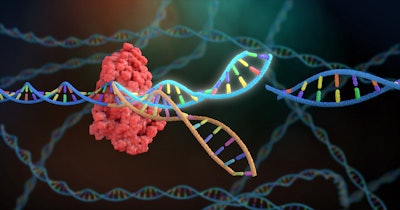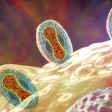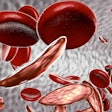
Danaher and the Innovative Genomics Institute (IGI) have launched a collaborative research center aimed at developing CRISPR-based gene therapies for a wide array of diseases.
The center, known as the Danaher-IGI Beacon for CRISPR Cures, will be based at the University of California, Berkeley and will take a unified research, development, and regulatory approach for gene-editing therapeutics for potentially hundreds of diseases.
The center's unified platform approach is intended to simplify and standardize preclinical and clinical development, Danaher said in a statement.
Researchers from the IGI team, which comprises researchers from three University of California campuses (Berkeley, Los Angeles, San Francisco) and other institutions, will oversee the center’s translational and clinical research. Nobel Laureate Jennifer Doudna, PhD, founder of the IGI, will oversee work at the center, with Fyodor Urnov, PhD, IGI's director of technology and translation, serving as director of the center. Both Doudna and Urnov are professors at the University of California, Berkeley.
As its first program, the Danaher-IGI Beacon intends to develop gene-editing therapies for two rare genetic disorders of the type known as inborn errors of immunity (IEIs): hemophagocytic lymphohistiocytosis and Artemis-SCID.
While IEIs comprise approximately 500 distinct diseases that together affect hundreds of thousands of people worldwide, they are currently not the focus of any major gene-editing trials, in large part because the patient population for each IEI is very small, and designing and testing therapies for each IEI would be challenging and cost-prohibitive. However, the IEIs have features that the researchers believe make them ideal candidates for the Beacon’s unified approach, including an extensive patient registry and a transplant-based route of administration that bypasses key challenges in delivering CRISPR molecules to the appropriate tissues.
Because CRISPR can easily be reprogrammed to address any gene mutation, the scalable platform approach that the Danaher-IGI Beacon center is developing would enable new medicines to be rapidly and efficiently developed across many IEIs, as well as other diseases.
Danaher’s Beacons program provides funding for academic research with the aim of developing innovative health technologies and applications. Focus areas for Beacons have included genomic medicines, precision diagnostics, next-generation biomanufacturing, human systems and data sciences. The Danaher-IGI Beacon for CRISPR Cures center is the largest Beacon project yet.



















